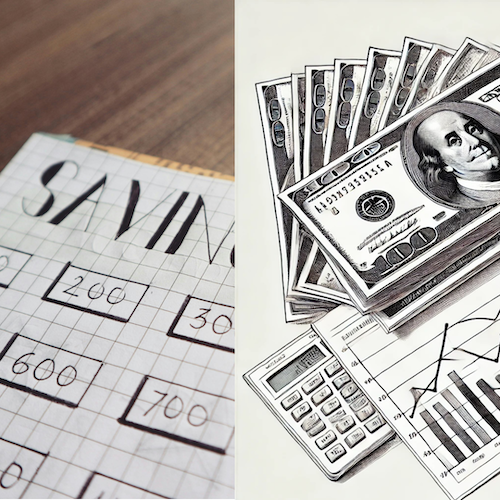In this course on financial literacy for middle school students we will learn the basics of personal finance and economics in a way that makes sense, is relevant, and fun for a 7th or 8th grader.
Financial Literacy Course
Together with your private teacher we will cover such topics as money management, budgeting, saving, investing, understanding the economy, and making smart financial decisions. Using engaging activities, discussions, and real life stories we will aim to develop a basic financial literacy, an understanding of how economics affects our daily lives, and how we can use this knowledge to manage money effectively. Nuanced discussions of crypto currencies as a burgeoning asset class will also be incorporated.
Although this course will be completely personalized to you, typically the structure looks something like this:
Intro To Personal Finance
We’ll begin with some basic definitions about personal finance.
- What is personal finance and why is it important?
- Key personal finance concepts
Money and How It Works
We’ll start with money. What is it, how is it used, and its role in the economy.
- What is money?
- Different forms of money
- The role of money in the economy
- Economic system
- Money’s role
- Earnings versus assets
Budgeting and Smart Spending
We’ll get our hands dirty by creating a budget and thinking through smart spending choices.
- What is a budget and why make a budget?
- Creating a simple budget
- Smart spending
- Needs vs. wants
Saving Money
We’ll discuss why saving money is important and how to do it.
- Why save money?
- Different ways to save
Understanding Credit and Debt
Next, we’ll learn about credit, loans, and the importance of avoiding debt.
- What is credit
- What is debt
- Types of debt
- The importance of managing debt
Introduction To Investing
Once we have some basic ideas about money, debt, and saving under our belts, we’ll look at the basics of investing and growing our money.
- What is investing and why invest?
- Types of investments
- What is an asset, and how does this differ from earnings?
Understanding the Economy
Gain basic knowledge of how the economy works and how it impacts personal finance.
- What is economics?
- The role of government in the economy
Financial Goals and Planning For The Future
Learn how to set financial goals and plant for long term financial success
- Setting financial goals that are short, long, and smart
- How to plan for the future
Emerging with an Understanding of Financial Literacy
By the end of this course we will have a solid, if basic, understanding of money and economics, and some tools at our disposal for managing (and growing) our money. We will have covered how to manage our money by building a budget; understood the value of savings and the danger of debt; gotten a basic idea of how money moves around an economy and the government’s role in that; been introduced to investing and assets; and set our own financial goals.
Along the way we will have engaged in a number of hands-on activities from building a budget to economic role playing, finishing off with a personal financial plan.

